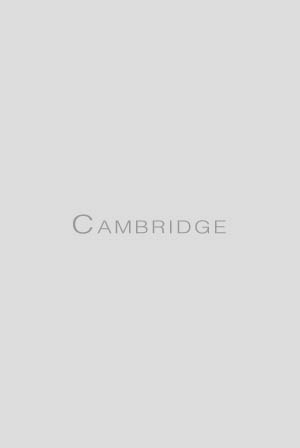No CrossRef data available.
Article contents
Public Education and the Discourse of Possibility Rethinking the New Conservative and Left Educational Theory
Published online by Cambridge University Press: 12 May 2020
Extract
The discourse of crisis has once again come into play in the field of education, and schools are once more the subject of an intense national debate. In the recent past, discussion has centered on whether schools can be the central institution for achieving racial and sexual equality; whether higher education in the traditional liberal arts curricula are still “relevant” to a changing labor market; whether the authoritarian classroom stifles the creativity of young children; or, conversely how permissiveness has resulted in a general lowering of educational achievement. All of these issues are still with us, but they have been subsumed under a much larger question: how to make the school curricula adequate to a changing economic, political and ideological environment?
- Type
- Symposium on Philosophy and Education
- Information
- Copyright
- Copyright © American Political Science Association 1985
References
Notes
1. Aronowitz, Stanley and Giroux, Henry A., Education Under Siege (South Hadley, Mass.: Bergin and Garvey, 1985)Google Scholar; David, Miriam, “Teaching and Preaching Sexual Morality: the New Right's Anti-Feminism in Britain and the U.S.A.” Journal of Education 166 (1) 1984, pp. 63–76CrossRefGoogle Scholar; Bowen, James, “Ideological Shifts in Education and Society: Towards a New Conception,” New Education 4(2) 1982, pp. 1732Google Scholar.; Wexler, Philip and Grabiner, Gene, “The Education Question: America During the Crisis,” unpublished paper, 1984, 41 pp.Google Scholar
2. Giroux, Henry A., “Marxism and Schooling: The Limits of Radical Discourse,” Educational Theory 34 (2) 1984, pp. 113–135.CrossRefGoogle Scholar
3. For an interesting discussion of this issue, see Wolfe, Alan, “Toward a New Politics of the Left,” The Nation (September 22, 1984), pp. 241–243.Google Scholar
4. See, for instance, The National Commission on Excellence in Education, A Nation at Risk: The Imperative for Educational Reform (Washington, D.C.: U.S. Dept. of Education, 1983); Force, Task on Education for Economic Growth, Action for Excellence: A Comprehensive Plan to Improve Our Nation's Schools (Denver: Education Commission of the States, 1983)Google Scholar; The College Entrance Examination Board, Academic Preparation for College (New York: College Entrance Examination Board, 1983); Twentieth Century Fund Force, Task on Federal Elementary and Secondary Education Policy, Making the Grade (New York; Twentieth Century Fund, 1983)Google Scholar; Carnegie, Corporation of New York, Education and Economic Progress: Toward a National Educational Policy (New York: Carnegie Corp., 1983).Google Scholar
5. For example, see Finn, Chester, “A Call for Quality Education,” American Education (January- February, 1982), pp. 32–36.Google Scholar
6. For an excellent analysis of this issue, see Borman, Kathy and Spring, Joel, Schools in Central Cities (New York: Longman, 1984)Google Scholar, especially Chapter 6.
7. David, op. cit.
8. Giroux, Henry A., “Public Philosophy and the Crisis in Education,” Harvard Educational Review 54(2) 1984, pp. 186–194.CrossRefGoogle Scholar
9. The classic example is Bowles, Sam and Gintis, Herb, Schooling in Capitalist America (New York: Basic Books, 1976)Google Scholar; for an extensive critique of this position, see Giroux, Henry A., Ideology, Culture and the Process of Schooling (Philadelphia: Temple University Press, 1981).Google Scholar
10. Bernstein, Basil, Class, Codes, and Control, Volume 3 (London: Routledge & Kegan Paul, 1977)Google Scholar; See various selections in Pinar, William, ed. Curriculum Theorizing (Berkeley: McCutchan Publishing, 1975).Google Scholar
11. Two classic works in this area are: Freire, Paulo, Pedagogy of the Oppressed (New York: Seabury Press, 1973)Google Scholar; Bourdieu, Pierre and Passeron, Jean-Claude, Reproduction in Education, Society, and Culture (Beverly Hills, Cal.: Sage, 1977).Google Scholar
12. Connell, R. W., et al., Making the Difference (Sydney: George Allen & Unwin, 1982).Google Scholar
13. Willis, Paul, Learning to Labour (Lexington, Mass.: D.C. Heath, 1977)Google Scholar; for an elaboration of this issue, see Giroux, Henry A., Theory and Resistance in Education (South Hadley, Mass.: Bergin and Garvey, 1983).Google Scholar
14. Freire, Paulo, The Politics of Education (South Hadley, Mass.: Bergin and Garvey, 1984).Google Scholar
15. I am drawing here from Gramsci's work on the social function of the intellectual: Gramsci, Antonio, Selections from the Prison Notebooks,ed and trans. Hoare, Quinten and Smith, Geoffrey (New York: International Publishers, 1977).Google Scholar
16. On this issue, see Sohn-Rethel, Alfred, Intellectual and Manual Labor: A Critique of Epistemology (Atlantic Highlands: Humanities Press, 1978).CrossRefGoogle Scholar


